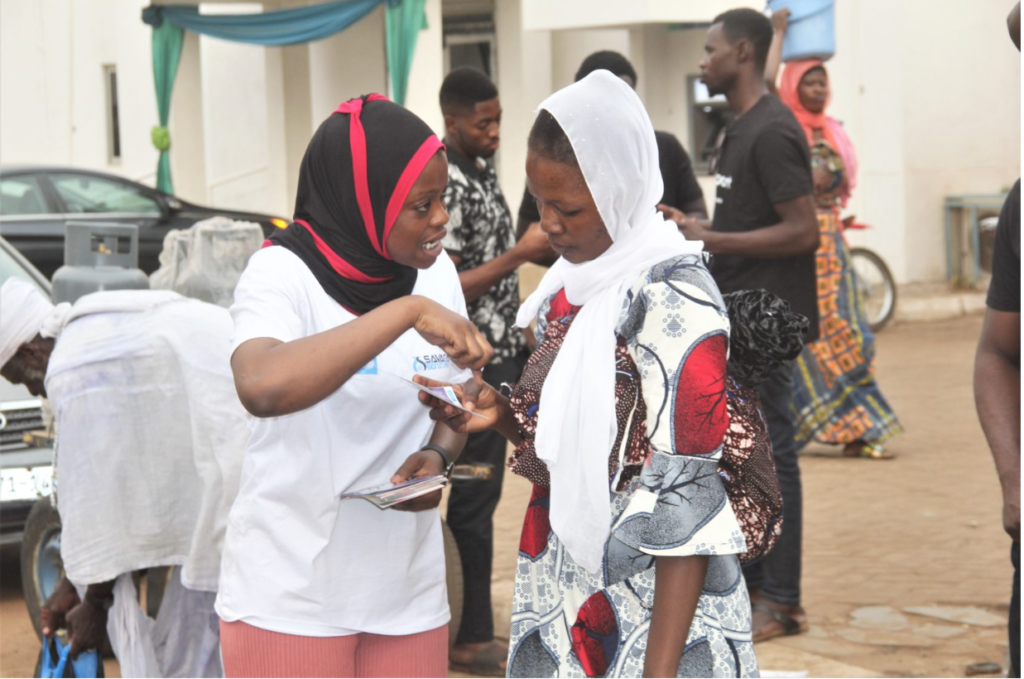On the frontline of digital health delivery in Ghana—SHE+ Helpline for all

The Ghana Health Service is by far the most important sector that safeguards the health of all and sundry in the country. Yet, in 2016, there were 1,003 clinics, 404 hospitals, 855 health centres, and 3 psychiatric hospitals, as well as 3,365 doctors, 14,791 community health nurses, 7,662 midwives, 619 pharmacists, and 13,231 registered general nurses. This implies that the ratio of doctors per population in 2016 was 1: 84813, (The Health Sector in Ghana – Facts and Figures 2017).
Though, there are some trifling improvements in recent times, young people conversely reported to have faced several challenges in accessing health services including stigmatization, lack of youth-friendly services, lack of confidentiality, delay response to patients’ needs and the likes.
Osman Farouk, a sickle cell patient and a student of the University for Development Studies said he uses his phone to reach out to health professionals more often to guide him on what to do and what not to do whenever he feel unusual pains. “This is relatively stress free as compared to going to the hospital to cue and pass through some process before having your issues addressed,” he added.
Jennifer Atinyo, a student of Tamale Technical University, said there is less confidentiality in hospitals as compared to using mobile health (mhealth) service. “I love the fact that mhealth is confidential, meaning the person next door will not know what I’m doing or what is wrong with me. I also have an app called SHE+ where I access sexual and reproductive health and rights information (SRHR).”
SHE+ Helpline for All
The solution to the many challenges in the health care system lies in a holistic approach including strengthening the digital health delivery systems (mhealth). In pursuit of this, the SHE+ Helpline, a private and confidential digital platform with nationwide coverage, is providing a right-based Reproductive Health and Rights (RHR) information in 11 local languages to enable young people to make right choices and to assist them with information and links to RHR services and commodities.
In furtherance, the SHE+ Helpline provides counseling and referral services, as well as generates an interaction among young people to discuss and share RHR knowledge, information and experiences. This is to get more young people empowered to make informed decisions about their sexuality.
The SHE+ Helpline has introduced a toll-free number (0800 00 11 22) to enable young people and the general public access health services for free.
One of the callers who was interviewed about the SHE+ Helpline indicated that “the Helpline provided me with adequate information and I wish I had known the platform earlier. It would have shaped my decisions in life.”
The caller added that “I needed to hide my identity and still be able to speak to a counselor and health professional who could understand me better and not label me as being bad or spoiled.”
In 2020, the SHE+ Helpline witnessed increase number of calls from 40 calls in a month to 96 calls. This resonates with the increase number of young people accessing and utilizing SRHR and SGBV services.
The SHE+ Helpline has contributed to the fight against COVID-19 by providing the platform for the public to stay at home and access health services including COVID-19 information in different local languages.
Considering the vitality of COVID-19 and similar future occurrences, the SHE+ Helpline initiative is crucial in serving hard-to-reach communities, and bridging the gap that exists in the health sector due to illiteracy level and service cost.
